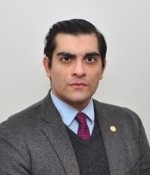Adaptive Frameworks for Uncertainty and Change
FEATURED PAPER
By Prof. Dr. M.F. HARAKE
MESOS Business School (France)
GBSB Global Business School (Malta)
CEREGE Research Laboratory – University of Poitiers (France)
Abstract
Project scope evaluation is a critical pillar of project management, yet traditional, plan-driven models struggle to remain effective in environments characterized by volatility, uncertainty, complexity, and ambiguity (VUCA). This paper critiques the limitations of conventional scope evaluation approaches in such unstable contexts and explores the potential of adaptive methodologies, such as Agile, hybrid frameworks, and scenario planning to fill this gap. Drawing from an extensive literature review, the study proposes a conceptual framework designed to guide scope evaluation in dynamic environments. The framework is grounded in four core principles: adaptability, stakeholder integration, iterative evaluation, and risk sensitivity. It introduces four interrelated components: Dynamic Scope Baseline, Risk-Informed Scope Matrix, Iterative Evaluation Loops, and Adaptive Stakeholder Engagement Mechanism that collectively offer a structured yet flexible approach to managing scope under conditions of continuous change. This integrative model repositions project scope as a dynamic, navigational tool rather than a fixed contractual element. It is particularly relevant to sectors such as humanitarian response, digital innovation, and transitional policy implementation where stakeholder needs, resources, and external conditions are prone to rapid evolution. While the framework advances the theoretical discourse on adaptive scope management, its conceptual nature and lack of empirical validation highlight opportunities for future research. Suggested directions include pilot testing across various sectors, developing dynamic evaluation metrics, and leveraging digital tools such as AI-driven risk modeling and stakeholder sentiment analysis. The study ultimately advocates for a paradigm shift in scope evaluation, one that emphasizes responsiveness, strategic alignment, and contextual sensitivity in the face of growing environmental instability
Key Words: Adaptive Project Management, Scope Evaluation, VUCA Environments, Stakeholder Engagement, Risk-based Planning, Dynamic Project Scope.
1 Introduction
1.1 Background
Project scope is a foundational component of effective project management, encompassing the precise delineation of deliverables, boundaries, roles, responsibilities, and stakeholder expectations. A clearly articulated scope not only establishes a shared understanding among project stakeholders but also serves as a critical reference point for planning, resource allocation, and performance evaluation. According to the Project Management Institute (PMI, 2021), a well-defined scope provides a baseline against which project progress and outcomes can be measured, enabling control mechanisms to be applied systematically throughout the project lifecycle. In relatively stable environments characterized by predictable conditions and minimal external disruptions, scope evaluation can be approached methodically using predictive models and structured methodologies. These models allow project managers to anticipate risks, monitor milestones, and make data-driven decisions to ensure alignment with project objectives (Kerzner, 2017).
However, the utility of this structured approach diminishes significantly in unstable or dynamic environments, where projects are frequently exposed to high levels of complexity, uncertainty, and volatility. In such contexts, initial scope definitions and assumptions may quickly become obsolete as new information emerges, and external conditions evolve. As Kutsch and Hall (2016) highlight, traditional scope management practices often struggle to accommodate the fluidity and ambiguity inherent in these settings, necessitating a more adaptive, flexible, and iterative approach to scope evaluation and control.
More…
To read entire paper, click here
How to cite this work: Harake, M. F. (2025). Evaluating Project Scope in Unstable Environments: Adaptive Frameworks for Uncertainty and Change, PM World Journal, Vol. XIV, Issue VIII, August. Available online at https://pmworldjournal.com/wp-content/uploads/2025/08/pmwj155-Aug2025-Harake-Evaluating-Project-Scope-in-Unstable-Environments.pdf
About the Author

Prof. Dr. M. F. HARAKE
Bordeaux, France
![]()
Prof. Dr. M. F. HARAKE is a management professor based in France. He currently serves as the Assistant General Manager and Dean of Academic Affairs at MESOS Business School (France). In addition, he is the Manager of the Research Center at GBSB Global Business School (Malta). He is also affiliated as an Associate Research Fellow at the CEREGE Research Laboratory, University of Poitiers (France). Prof. Harake’s research interests include Post-Conflict Public Management, Crisis and Urgent Operations Management, Humanitarian Logistics, and Project Management in Unstable Environments. His academic and professional contributions focus on bridging strategic theory with high-impact practical execution, especially in volatile and complex contexts.
He can be contacted at mfharake@mesos-bs.com
To view other works by Prof Harake, visit his author showcase in the PM World Library at https://pmworldlibrary.net/authors/mohamad-fadl-harake/









